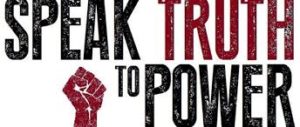What is Our Responsibility
Over the past few years I have worked with and met a number of social entrepreneurs. I have been struck by how many have come into the work that they do through perceiving injustice, inequity or inefficiency elsewhere. Most social entrepreneurs I know are not new to ‘doing good’ – it is in their blood. For many they have committed their lives and been working for years trying different approaches to creating change or making a better world.
A striking number have recounted to me experiences they have had in previous jobs at non-profit organizations or the corporate sector where they perceived a genuine problem. The problems people have shared have been very diverse, including misaligned strategy, poor spending, workplace bullying, mismanagement, ego-based leadership and perhaps most alarmingly, an unwillingness to listen to contrary or negative feedback. Sometimes these problems create harmful organizations or programs, and other times just keep the organization in a place of mediocrity; locked away from fully achieving greatness or their mission.
Many social entrepreneurs I have come across have actually first attempted to create change, innovate or establish new initiatives within these existing organizations. They have often experienced the resistance that comes from a system trying to protect itself, and not allowing new information to come in. Many have also experienced not being heard when trying to express counter views or challenge authority when they witness unethical behavior in leadership.
I could not even count how many people I know who have felt that they have had no other option than to leave the organization as they have been unable to create change there. In some cases, their departure has not been their choice. The information and perceptions they have had and were unable to share would have potentially saved the organizations they worked for a great deal of money, their brand and created a more aligned strategy. If they could somehow speak truth to power, their experience and the impact of the organization could have been changed.
For me, one of the reasons that people find themselves in this position is because they lack the skills and confidence to deal with and speak to power. By ‘…power’ I refer most often to people in positions of authoritative power (Board Directors, CEO’s, management), and by ‘speaking truth to…’ I mean the ability to give feedback and name what the individual perceives as going on.
I do not write this with any judgement or criticism, I write simply as an observation. I too have been in positions where I have felt unheard or unable to speak effectively ‘my truth’ to people in more senior roles to me. I have also experienced being in positions of authority (CEO, senior management, Board Director) and probably caused pain for people in terms of them not feeling like they could voice certain views with me.
Understanding power, resolving ones relationship with it and being able to work effectively with power is bloody difficult. This is not an easy journey at all. The reason many people find it difficult or lack the confidence is that they have been burnt in their past (earlier life or past-life) by the misuse of power by others. The consequences can sometimes be incredibly painful, and it is totally understandable that people avoid situations where they would need to experience it again.
I have one friend who was until recently the CEO of a major charity. This charity was significant in size, budget and reputation, and had a number of challenges including unethical and misaligned leadership at the Board. This behavior and practice was not obvious to everyone, but certainly a strong number of staff and the community had expressed their being disenfranchised with the organization’s governance. The CEO had a choice of whether to speak against it, or play along with their power games and behavior. She chose to speak against it, which was an enormously courageous act. The consequence was that she was forced to step down from her post, representing a significant loss to the organization and her personally. Positive results did come out of it too, including the Board being forced to look at the way it governed. The courage of this CEO to speak truth to power led to a startling turnaround for that organization.
For me the single most striking problem in the ‘doing good’ or non-profit world is our understanding of and ability to deal with power. So much importance is placed on entrepreneurship, innovation and creating new change. Our ability, willingness and courage to shift existing organizations or initiatives to more ethical, aligned and positively impactful positions is critical. Otherwise we find ourselves in the position whereby creating new good only perpetuates the existing bad. We are not actually transforming that which is at worst harmful or otherwise just mediocre, into that which may be great.
A wise colleague of mine Beth Worrall champions the role of entrepreneurs within existing organizations or systems. Beth taught me a lot about the important role that individual employees within larger systems can play. When these employees work effectively with power, their impact internally and externally can be huge – even from the most ‘junior’ roles.
Whether we are committed to sticking out the journey in our existing workplaces or moving into new ventures, our willingness and ability to work with power is critical. Perhaps I will come back to this in a later post, but it starts with first seeking to understand ourselves and our own current relationships with power. This is challenging and can surface stuff about ourselves that we perhaps don’t want to face. I know for me that journey has been difficult, but one that hopefully in the end will bring me closer to being a better change maker.
